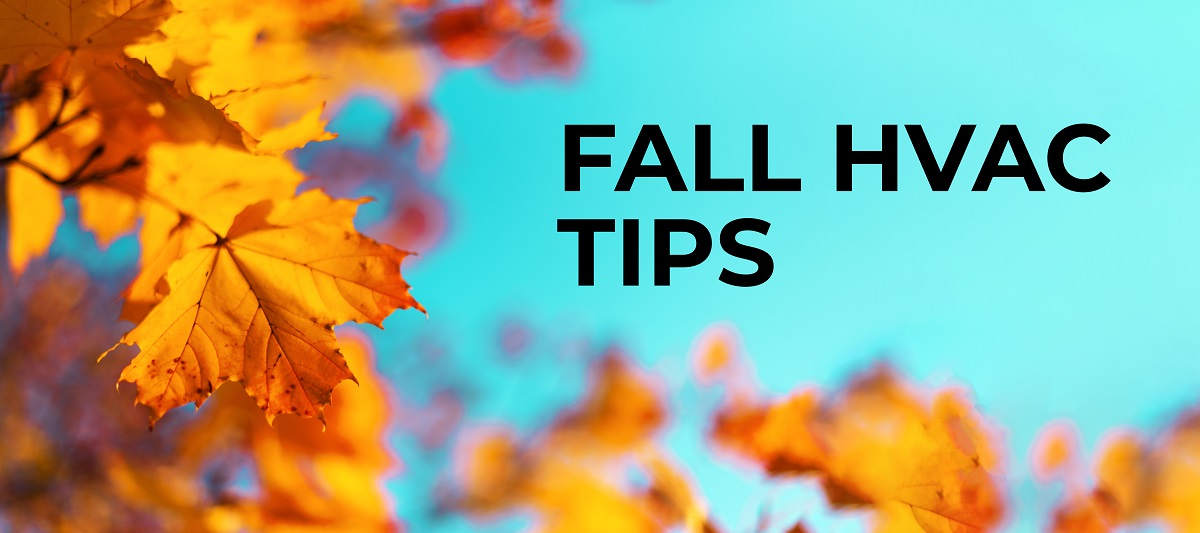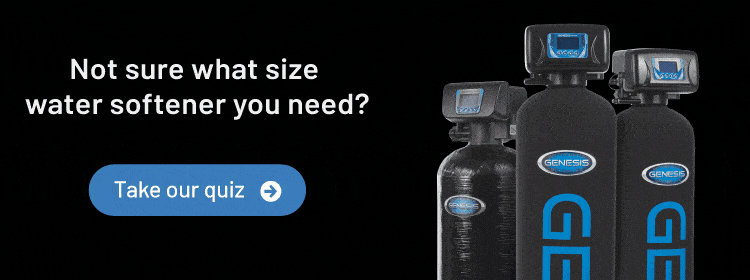FALL HVAC TIPS
Posted by Discount Water Softeners on Sep 20th 2019
HVAC Tips for the Fall Season
There are those of us who mourn the loss of summer with its long, hot days of endless fun and the sounds of the ice cream truck followed by children’s happy shouts. Others look forward to the changing of the seasons, content with a hot cider to warm them after a day of apple picking surrounded by leaves of red and orange. No matter the season you love best, there’s the certainty that cold, winter months are approaching. With that, you may wonder how all the freezing wind, rain, snow, and ice may impact your HVAC equipment.

Changes in temperature will cause your HVAC system to work harder. When it’s cold outside, the operation of your unit is affected as more energy is needed to keep your home comfortable. Preparing for the winter saves you money on utility costs and increases the efficiency of your system. The last thing you may be thinking about as you throw a jacket on and wrap a scarf around your neck, is your air conditioning unit. But unless you expect summer never to come again, winterizing your A/C system should be on every homeowner’s checklist for the fall.
Along with your HVAC system, other equipment in your home may need attention. If you own a vacation home and it won’t be occupied during winter months, don’t forget about your water softener! Typically, water softening equipment won’t need to be winterized. But if you’re turning off the heat for an extended period of time, you should take precautions to ensure your softening equipment will be safe in below freezing temperatures.
A/C Unit
A residential heating, ventilation, and air conditioning (HVAC) system is comprised of a furnace, duct work and ventilation for heating, and an air conditioning unit for cooling. Routine HVAC maintenance ensures that all components will run properly throughout the year. The best time to prepare your outdoor or central air conditioning unit for cold weather, is right as the temperatures outside change from warm to cool. Damage to your air conditioning unit during winter months could make for a much sweatier summer than most people would enjoy. It’s good practice to get all parts of your HVAC system ready for the cold months ahead, to ensure you stay toasty warm when you need to, and cool after a long winter’s respite.
Before beginning any winterization, disconnect the power and shut off the unit completely. Inspect your unit. Any part of an HVAC system that comes into contact with frigid winter air, snow, or water, should be checked for cracks, leaks, and blockages. This includes blowers, hoses, pipes, etc. Clean up any yard debris and dead vegetation from around your outdoor condenser. Use a hose to gently free leaves and dirt from around the unit. It’s also important to make sure your gutters are in good shape to prevent leaking or water runoff on to your system.
Filters, Vents, and Ductwork
The colder it is outside, the harder your furnace will need to work to heat your home. The furnace lives inside your home, so it doesn’t have to contend with snow and ice. However, snow can block the vents that allow your furnace to take clean air from the outdoors, and those that expel dirty air from indoors. A blockage can cause your system to shut down, or trap exhaust fumes, including carbon monoxide, forcing it back into your home. Not keeping your vents and exhaust pipes cleared of snow can produce dangerous results.
Your home’s ductwork is what allows the air from your furnace or AC unit to be distributed around your house. Air vents allow your heated or cooled air to enter your living space from the ductwork. Keeping your vents clean will help to avoid allergies and blockages. Changing the air filters in your furnace also keep allergies at bay by catching dust and airborne particles. Clean filters lower energy bills, improve air quality, and prevent wear and tear on fans and compressors that would otherwise struggle to move air through a dirty filter. Removing and cleaning your registers, wiping off dust and other particles, and vacuuming out the supply will increase air flow. Obstructed air flow causes an HVAC unit to work harder. Examine heating ducts to check for damage, particle build-up, and to ensure all parts are connected properly. Schedule regular maintenance once a year so that your furnace runs safely and effectively. If your furnace hasn’t been used all year an HVAC technician will give your system a tune-up, look for potential issues, and prep it for the winter. Having a profession clean your entire system will improve air quality and prolong the life of your unit. When HVAC equipment is working efficiently, homeowners benefit from energy savings and avoid unnecessary emergency expenses.
HVAC Maintenance Tips
Don’t make your furnace work too hard. Turn down your thermostat when you leave the house for prolonged periods of time. Programmable thermostats make it easy to set a schedule for the temperature to be turned down when you are at work or on vacation, and rise to a comfortable temperature before you return.
Add insulation! A drafty house overworks your heating system. Insulation will keep the warm air trapped inside and cold air out where it belongs. Close gaps in your doors and windows with weather stripping to avoid drafts in places where insulation can’t be added. If your home will be vacant during winter months, foam pipe insulation will keep piping from freezing and bursting. Frozen pipes pose a number of risks to your home, including your water softening equipment. When your softener is in generation mode, frozen pipes can easily cause flooding.
Turning off your water softener or putting it into bypass mode eliminates a possible source of leaks or freeze damage, and isolates water softening equipment from the rest of the water supply. There are special water softener tank jackets that can also help insulate your tank. These jackets can be used during any season, but give an extra layer of protection during freezing temperatures.
Fight your instincts to crank up that thermostat when you’ve just come in from the cold. Setting your home’s temperature to 80 degrees when your ideal temperature is 70, isn’t going to make it get warmer faster. A furnace works at the same pace whether you turn it up a notch or twenty.
Don’t block your vents. Warm air distribution is uneven when furniture obstructs your vents, making your furnace less efficient. You don’t want to sacrifice the quality of your air conditioning or heating by placing objects on your registers.
While Home or Away
Look at your HVAC system as an investment. When it comes time to replace parts or equipment, do your research and make sure the new system fits your lifestyle, your home, and the level of efficiency you want to achieve. Cheap replacements might lessen the load on your pocketbook, but in the long run, a good quality, well-maintained HVAC system is going to last twice as long and save you twice as much, as poorly manufactured products.
If you don’t plan on using your water softener during the winter months, and the heat in your home will be turned off, protect your system by disconnecting, draining, and storing it properly. Feeling comfortable in your home and while you’re away is an important consideration throughout all seasons, but especially during extreme weather conditions. Properly cared for equipment results in healthier air quality, a reduction in energy bills, and an efficient system that works smoothly all year round.

